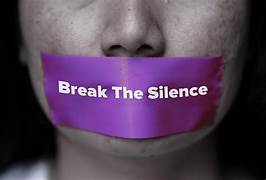
Depression is often associated with sadness, isolation, and despair, but it does not always present in obvious ways. Many people struggling with depression may not even realize they have it because their symptoms do not fit the common stereotypes. Depression can manifest in subtle, unexpected ways, making it easy to overlook. Recognizing these hidden signs is crucial for getting help and supporting loved ones who may be suffering in silence.
Uncommon or Overlooked Signs of Depression
1. Persistent Irritability or Anger
While depression is typically linked to sadness, some individuals experience heightened irritability or frequent outbursts of anger. This is especially common in men and adolescents who may struggle to express their emotional distress in conventional ways. Instead of appearing withdrawn, they might seem constantly annoyed, impatient, or aggressive.
2. Physical Pain and Unexplained Aches
Depression does not just affect the mind—it can also take a toll on the body. Unexplained headaches, muscle aches, stomach pain, and even chronic fatigue can be linked to underlying depression. When medical tests fail to identify a clear cause for persistent pain, it may be worth considering mental health as a factor.
3. Perfectionism and Overworking
Some individuals cope with depression by becoming perfectionists or workaholics. They may push themselves to achieve unrealistic goals, using productivity as a way to distract from their emotional pain. This “high-functioning depression” can go unnoticed because, on the surface, these individuals appear successful and driven. However, underneath, they may feel empty, exhausted, and overwhelmed.
4. Changes in Appetite and Weight
Depression can cause both overeating and loss of appetite. Some people may turn to food for comfort, leading to weight gain, while others lose interest in eating, resulting in weight loss. These changes often happen gradually, making them easy to dismiss as minor fluctuations.
5. Difficulty Making Decisions
A lesser-known symptom of depression is impaired cognitive function. People struggling with depression may find it difficult to make decisions, even about simple things like what to wear or what to eat. They may feel mentally sluggish, forgetful, or unable to focus, which can affect their work and personal life.
6. Social Withdrawal in Unexpected Ways
Not everyone with depression isolates themselves completely. Some may still attend social events but feel emotionally disconnected or exhausted by interactions. They may seem present physically but disengaged mentally, struggling to find joy in conversations or activities they once enjoyed.
7. Apathy and Loss of Interest in Life
Depression can make life feel dull and meaningless. People may lose interest in hobbies, relationships, or personal goals. They might go through the motions of daily life without feeling any genuine enthusiasm or motivation.
Why These Signs Are Often Missed
Many of these symptoms are dismissed as personality traits, stress, or temporary mood swings. However, when they persist over time and interfere with daily life, they may be signs of an underlying depressive disorder.
When to Seek Help
If you or someone you know exhibits these hidden signs of depression, it is essential to seek professional help. Depression is a medical condition that can be managed with therapy, medication, lifestyle changes, and social support. Recognizing the many faces of depression is the first step toward healing and recovery.
By raising awareness about these often-overlooked symptoms, we can encourage more people to seek help and break the stigma surrounding mental health.
